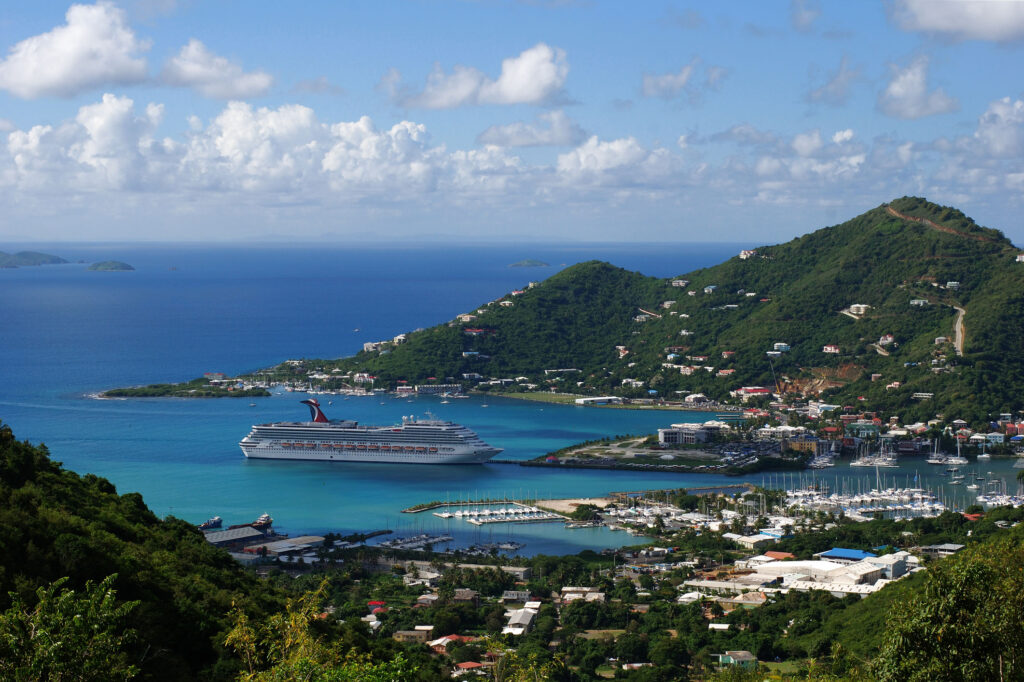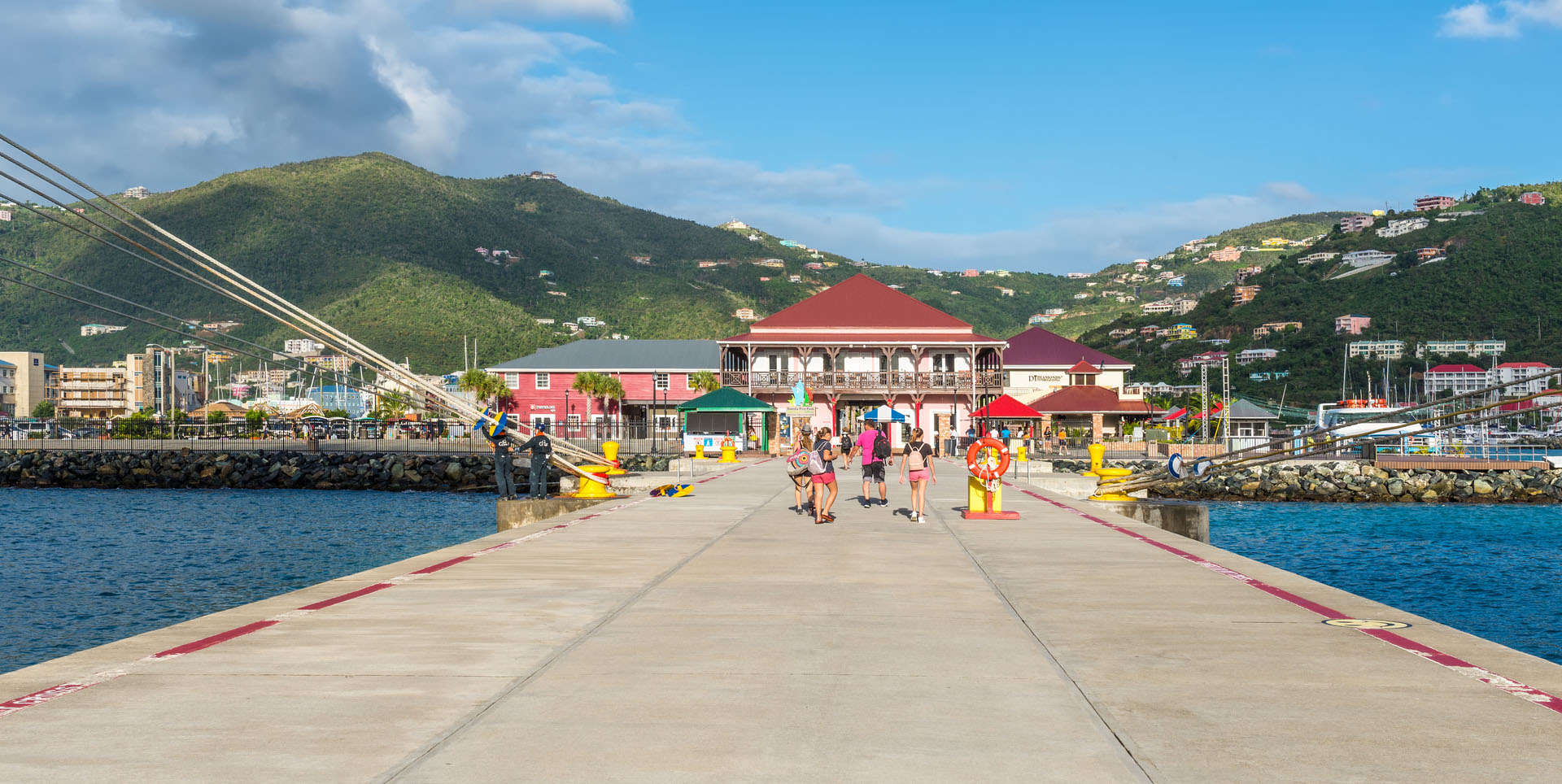BVI: Rebuilding with resilience
By Mike Jarrett
2019, July 1: When hurricane Irma, at that time the largest, fiercest storm on planet Earth, traced a path of death and destruction through the northern Caribbean, its first encounter, it was with a cluster of small islands including those known collectively as the British Virgin Islands (BVI). It was during the first week of August, 2017.
The BVI comprises four main islands and a number of small ones. Tortola is the largest of them and is the site of the capital, Road Town
In the end, hurricane Irma left behind catastrophic damage in several countries and territories, including: Anguilla, Barbados, Barbuda, British Virgin Islands, Cuba, Dominican Republic, Florida, Haiti, Puerto Rico, Sint Maarten, St. Martin, the US Virgin Islands, the Turks and Caicos Islands. Barbuda was so damaged that inhabitants of that island had to be evacuated. But, barely six weeks later, another super powerful hurricane, this one bearing the name Maria took out the BVI, on its way to levelling Puerto Rico, leaving death and darkness in its wake.
With the second anniversary of the visit of these two devastating cyclones now approaching, the British Virgin Islands Port Authority has described the rebuilding process as “painstaking’ and “going reasonably well”. The damage done to port and service infrastructure was massive and extensive. The rebuilding programme would therefore be expected to be as extensive.
“Our port was affected, and, needless to say, the rebuilding effort is painstaking,” says Lenius Lendor, Managing Director at the British Virgin Islands Ports Authority.
“It has been going reasonably well. We are rebuilding in a climate-resilient manner so as to better withstand such storms. Everything needs to be able to withstand hurricanes and other seismic events likely to happen in this part of the world.”
There are however circumstances that may require temporary fixes. The ferry terminal on the west side of the port was totally destroyed and we are in the process of erecting a temporary structure, he explained.
“The footprint for the permanent structure is also being worked on and we are moving towards reopening everything for the ferry traffic as soon as possible because we are very heavily dependent on tourism,” he stated.

Resilience
The BVI’s main cruise pier at Road Town is already fully operational. However, recovery on some of the smaller islands in the BVI has been relatively slow.
“Some of the smaller islands have been a bit slower in recovering from the damage and we are still rebuilding there … once again, with greater resilience in mind.”
The commitment to rebuild with greater capacity to withstand and recover from tropical hurricanes and earthquakes is clearly a priority. That commitment comes just a few years after successful completion of major upgrade to the Road Town port and the opening of Tortola Pier Park.
In 2014 the government of the British Virgin Islands (BVI) adopted plans to upgrade and expand the port at Road Town. One year later, Tortola Pier Park was meeting the demands of growing cruise ship business. The vision for that development was to accommodate more cruise passengers at Road Town and thus increase revenue inflows. The new development included plans to host larger class cruise vessels and to provide a seamless transfer of passengers from ship to shore. The cruise pier was lengthened to 1,312 feet and widened to 60 feet so as to accommodate a multi-million dollar, multi-faceted (cruise, retail and event venue) space along the waterfront edge. This development, named Tortola Pier Park, was built on approximately five acres of land immediately adjacent to the cruise pier.
The development of Tortola Pier Park was timely. It was important to upgrade the infrastructure of the port to meet the demands of the cruise industry and to seize the opportunity for growth and development.
The new development provided an improved visitor experience, with more leisure and shopping within walking distance and was still spanking new when the hurricanes struck in 2017.

Opportunity
More than greater resilience, the rebuilding process has created opportunities to review and reassess the layout of the port. And the Managing Director confirmed that the opportunity has been grasped.
“We have been reviewing the layout to have it (the port) organized more optimally to see how we can increase the efficiency and effectiveness of our services. We are also trying to rebuild in a more eco-friendly way, with emphasis on saving energy. Being dependent on tourism, we are especially concerned about preserving beaches and waterways. So we remain mindful of pollution and try to avoid any damage to the local ecosystems.”
The rebuilding strategy in the BVI and the emphasis on resilience and operational efficiencies includes significant new investment in digital technology. The first order of business in this regard is to become fully compliant with (the International Ship and Port Facility Security Code) ISPS. Among other things, the BVI Port Authority will be upgrading its security (with closed-circuit television); and, upgraded cargo processing systems. This is expected to produce greater efficiencies in cargo delivery, tracking, processing and record keeping. “It will be integrated with our other departments, like Security, Finance, and Operations,” Mr. Lendor said.
The BVI team has opened discussions with stakeholders about electronic data interchange (EDI) and a more streamlined process. The intention is further integration, making things more user-friendly for customers, the Customs, Immigration authorities and relevant port personnel.
Many of the improvements and efficiencies envisaged in the current rebuilding process are revolutionary by definition and therefore a total review of the current layout of the main port facility is ‘job one’.
“The priority for us is really optimizing the layout of the port. The current layout is functional but not quite perfect and we believe we can increase the efficiency and the effectiveness of our operations. We (already) have approval for the procurement of equipment such as forklifts and so on, as well as the software that will facilitate further integration of different departments.”
Plans
Plans for the immediate future are all about completing the recovery and rebuilding of structures and systems lost in the summer of 2017. In this context, projects will include:
- completion of the rebuilding of infrastructure damaged in the hurricanes;
- continuation of expansion of the Less Than Container Load (LCL)facility;
- construction of a warehouse about three times larger than current space; and,
- separation of pedestrian traffic from the operational area.
“We will be making plans for eventually enlarging operations at Port Purcell. We believe it’s important to have one eye on the future and continue investing in future growth. The current footprint is functional but we believe that future growth and development must be catered for and that there is always room for improvement and expansion.”
Mr. Lendor spoke of expanding the quay to accommodate more ships and of expanding the cruise terminal and building a marina.
“The British Virgin Islands are a sailor’s paradise and we would like to be able to accommodate the continuing use of our region for tourism and travel. Just one year after hurricanes impacted the British Virgin Islands so severely, we have made some truly remarkable strides towards recovery and are back stronger than ever, open for business on both the cruise side and the cargo side of our operations,” Mr. Lendor said. []





